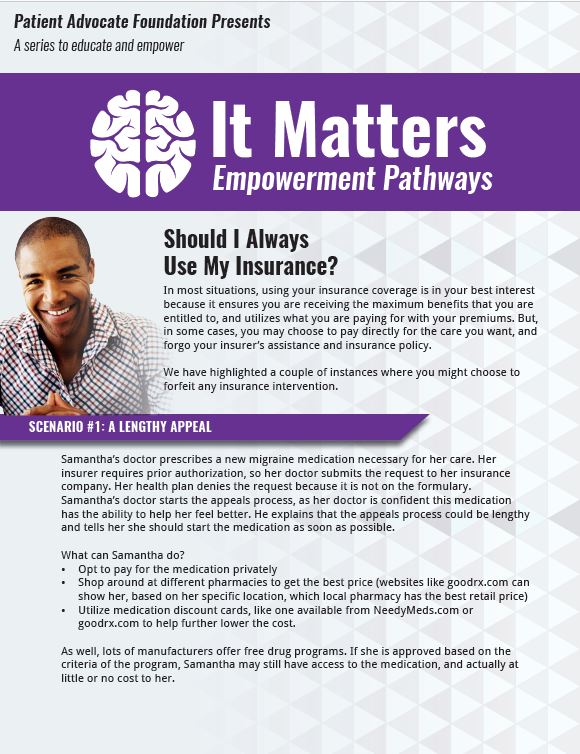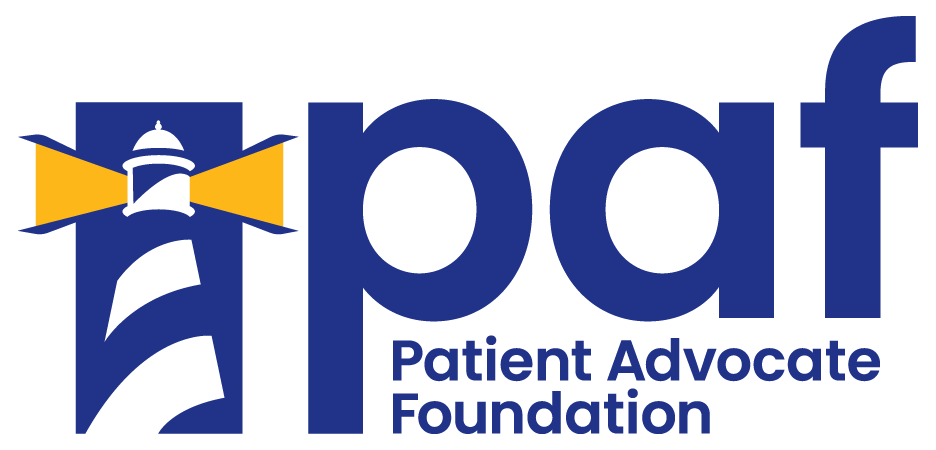Downloads

Should I Always Use My Insurance?
This publication created for the migraine community highlights two scenarios and the pro’s and con’s of using and not using your insurance.
 Menu
≡
╳
Menu
≡
╳
Patient Advocate Foundation (PAF) is a national 501 (c)(3) non-profit organization which provides case management services and financial aid to Americans with chronic, life threatening and debilitating illnesses.
In 2023, PAF served a population
of patients with over 958 distinct diagnoses.
Donate today and help Patient Advocate Foundation continue to help patients get access to the prescribed healthcare that they need.

This publication created for the migraine community highlights two scenarios and the pro’s and con’s of using and not using your insurance.